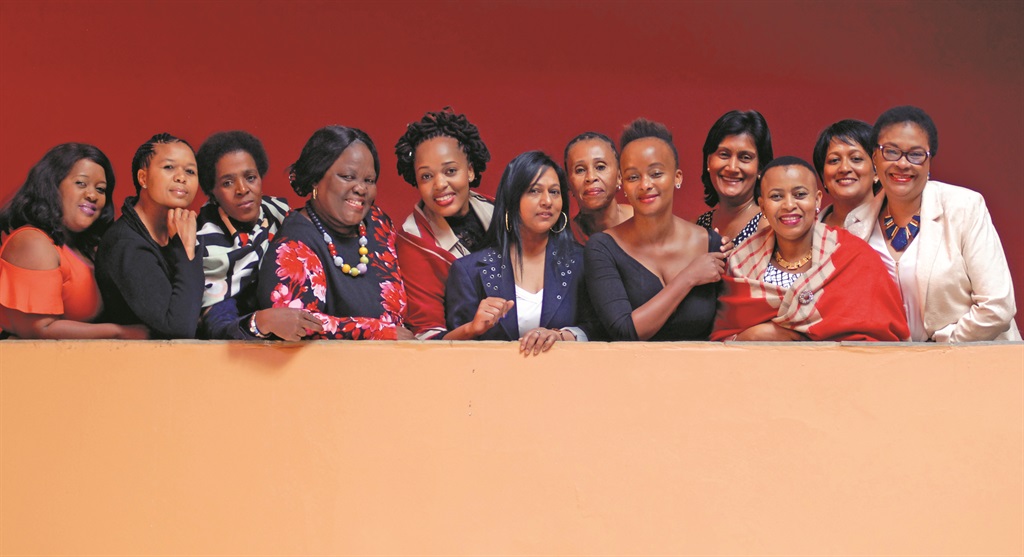
Forthright Dipuo Gqola of Wahlumaa Trading Enterprise in La Lucia, Durban, says she only realised the importance of a business plan after she attended the business modelling course at the Gordon Institute of Business Science (Gibs).
“I used to think a business plan was a waste of money and time. And both of those are in short supply for most of us entrepreneurs,” she says.
Now, after the Gibs course, Gqola has changed her mind completely about drawing up a plan because “it is like your bible and guides you in managing your business”.
Nokwazi Mzobe, a part-time lecturer at Gibs who has her own business, Matoyana Business Solutions, says: “I do more than show National Home Builders’ Registration Council [NHBRC] delegates how to draw up a business plan. We also do business modelling in our workshops, which takes them through every element, step by step, of running a business. The basic question they need to ask is: ‘Am I solving a client’s problem, am I meeting a need?’”
Most of the delegates work for government, “but I get them to break that down. Is it a state-owned enterprise or a government department or a municipality? They need to pull the characteristics together so they can create a picture of their customer,” says Mzobe.
“If it’s a municipality, for example, you need to segment it. Is it urban or rural? Their needs are different. You can’t compare Joburg to Ixopo.”
Entrepreneurs need to work out how to reach government, “which is extremely compliance driven, so marketing yourself to it is different from doing so in the private sector”.
Zanele Mjadu of Khazimula Investments cc in Richards Bay says: “I’ve learnt a great deal through
the Gibs-NHBRC training programme, and the business plan session nailed it all.”
A decade ago, she resigned as principal of a high school in Melmoth to venture into construction. Now she wants to improve her grading to attract corporate clients who are building shopping malls and glass offices.
“I also want to build boreholes and dams to alleviate South Africa’s water shortage,” she says.
Thanks to the Gibs course, Dolly Tembe of Sakhisizwe Development Training and Contractors in Mtubatuba is going to change the way she has done her business plans for the past 20 years.
“I’ve been to workshops and courses for two decades, but I’ve never come across a facilitator as dynamic and energetic as Nokwazi Mzobe,” says Tembe. “I’ve learnt that to provide a proper service, it is vital to know your customers’ needs, wants and fears.”
The NHBRC workshop was an eye-opener for many of the delegates, and certainly for Nandi Sithole of NM Mhlungu Enterprise cc in Pinetown.
“I thought that a company only needed a business plan when it required funding. But what I’ve learnt from the workshop is that we need to keep on revisiting the business plan, particularly if we are not achieving our goals. Then we need to check the plan and maybe change it,” says Sithole.
Mzobe was thrilled with the feedback she received from the NHBRC delegates.
“I urge them to review their plans every six months or on a quarterly basis.”
Bonisiwe Hadebe of Innob Trading cc in Vryheid has done projects ranging from building a piggery for 10 sows with the department of agriculture in Nkandla to erecting fencing worth more than R1.5 million in Nongoma.
“I’ve worked with the department of arts and culture, and most recently I did some work for Parliament,” Hadebe says.
Now she plans “to target sectors such as Transnet, Eskom and mines. I’ve learnt that I must look at different trends and patterns in the construction field.”
Mzobe compares a business plan with a business model by explaining that the latter “makes you examine every aspect of your business, such as internal processes and different revenue streams. A plan is a strategic document. It’s your road map from today to tomorrow. You need to plan how to raise money, how to tailor the plan if you want a partner in your business and so on.”
Mzobe asks her delegates why a banker would ask for a business plan and what an investor would look for.
“I suggest that they need to view themselves as investors in their own businesses. They view themselves as owners only – but regarding yourself as an investor certainly changes your mind-set.”
She illustrates her point by explaining that if you give a child R50, “you want to know how they intend to spend it. You don’t just give it to them.”
The same applies to investors, who look for your experience in your line of business, what opportunities are available, the size of your potential market, and if you know and understand your customers.
“They will also want to know if you have managed a business before and, if so, if you have the capacity to do the work in your current business. Do you have the right skills for it and some sort of funding so that you can cover its operational costs?”
A business needs realistic financials and an investor will want to know “how much he will get out of it and, when he exits, what will his percentage take be”.
Mzobe also talks about the “five C’s of credit: character, capacity, capital, conditions and collateral”.
Siyabonga Majozi of Hygiene Lab in La Lucia, Durban, found the course helpful “because it made me re-examine why I started my business. It showed me that I’ve not been doing this the right way.”
It also, she says, highlighted her weaknesses and strengths.
“I went back to my staff afterwards and got them more involved in the business. I understand now that I cannot do it alone. I need their support.”
Nonhlanhla Sotyato of Gesikazi Global (Pty) Ltd in Westville, Durban, says the most important thing she has learnt “is identifying my point of difference. I had always struggled to work out what sets me apart. Best of all, I’ve learnt to write a business plan myself and I no longer have to rely on consultants.”
A project in partnership with the NHBRC




 Publications
Publications
 Partners
Partners








